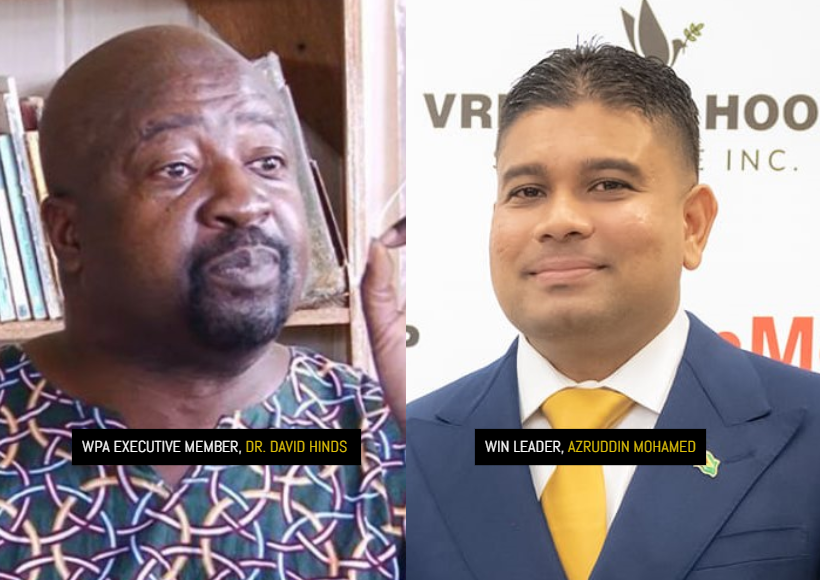Azruddin Mohamed, a Guyanese businessman sanctioned by the US for alleged gold smuggling, is set to enter Guyana’s Parliament as the new Opposition Leader — a move the ruling PPP/C says could spark a legal and political crisis. But domestic law does not currently prohibit him from taking office. Or will it?
According to Executive Member of the Working People’s Alliance (WPA), Dr. David Hinds, the courts will ultimately have to decide which law takes precedence.
“International means that Mr Mohamed is under the cloud, but our national law does not prevent him from running for office [or] entering office. I would like to hear what the courts will say when you have a clash between the imperatives of international law, because these financial arrangements, under which he is sanctioned, are part of the international imperatives that have been imposed on countries like Guyana over the last two decades or so.
Then you have our own local law. So, there is a clash here, and I would like to hear how the court will come down. Basically, you’re talking about which law is supreme,” Dr. Hinds said during a press conference on Wednesday.
He added that the state of affairs could have significant consequences for the functioning of government. The WPA stalwart said that the Office of the Opposition Leader is part of the government, constitutionally, and therefore, Mohamed, being a sanctioned person in the National Assembly, could affect the entire governance system.
“I remind the media and the public that the Office of the Opposition leader is part of the government. The opposition leader is part of the government, constitutionally. So here we have someone who is part of the government who is sanctioned under an international treaty that we have signed onto,” Dr Hinds stated.
It is apt to note that Guyana is governed by three separate, but complementary, branches of Government: the legislature, the executive and the judiciary. The power to run the country is divided among the three branches to create a system of checks and balances.
In the legislature, parliament consists of the president and the National Assembly. It makes laws and can amend existing laws. The president is not a member but may attend and address the assembly and must assent to bills for them to become law.
The Executive governs the country. The president, as head of state and commander-in-chief, appoints the prime minister and other ministers. The Cabinet, including the president, prime minister, and appointed ministers, advises and aids in running the government.
The courts hold judicial authority, interpreting and applying the law independently, subject only to the Constitution and law.
The opposition leader is not part of the executive branch of government but rather, a member of the legislature. The separation of powers doctrine, therefore, divorces Mohamed from the Executive and indeed, the judiciary.











